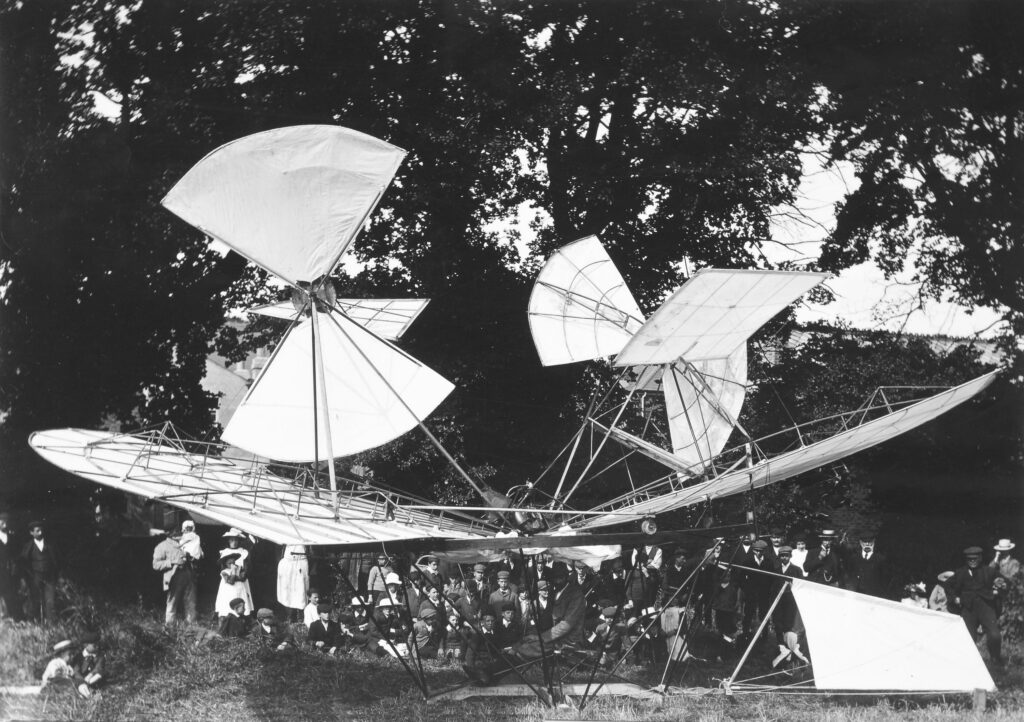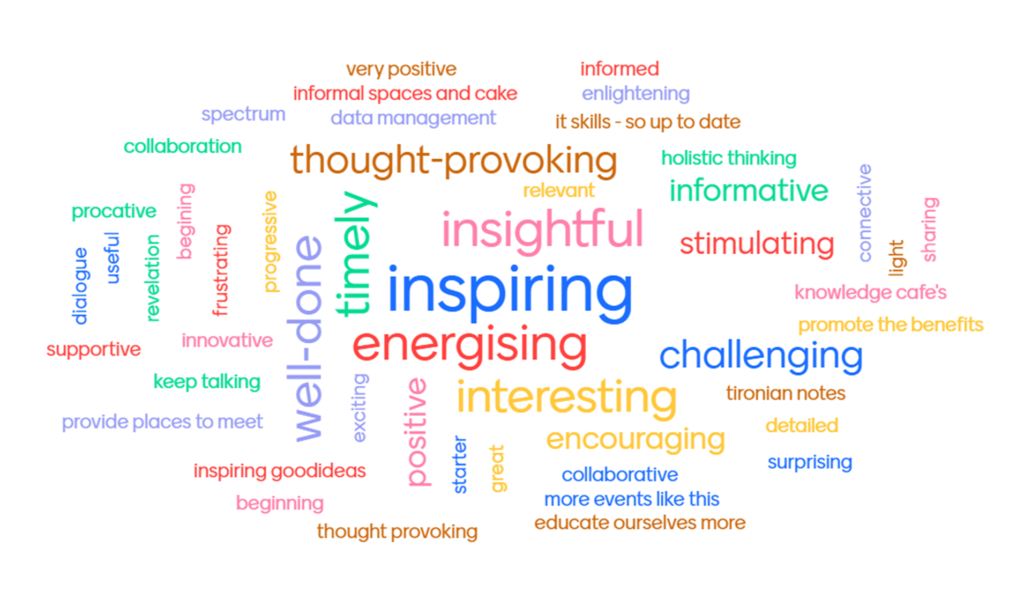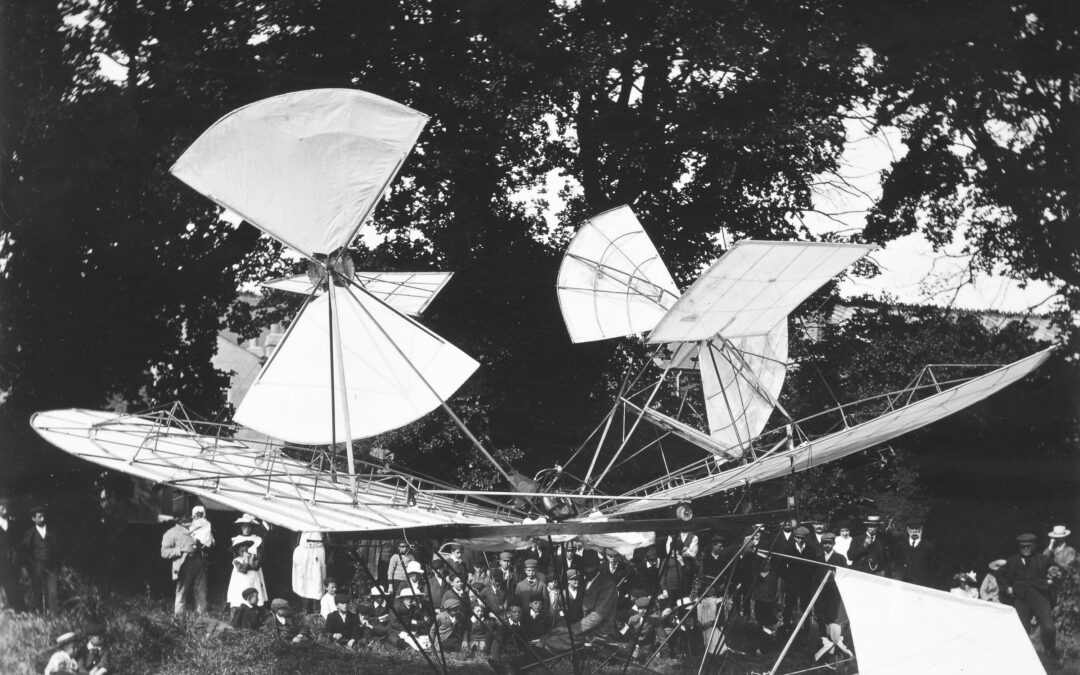In March 2020 the Gerald Aylmer Seminar was one of the last in-person events to take place at The National Archives before the first Covid-19 lockdown. In September 2021, 18 months on from the 2020 event, the Seminar took place in an experimental online format.
The Gerald Aylmer Seminar is an annual event designed to bring together historians and archivists to discuss topics of mutual interest. It is delivered in partnership by The National Archives, the Institute of Historical Research and the Royal Historical Society. The Seminar is named in memory of Gerald Aylmer (1926 – 2000), who was a former President of the Royal Historical Society and Chairman of the Historical Manuscripts Commission.

Mechanical Flying Machine, The National Archives, COPY 1/464 (34), 1903
Future directions for archival and historical practice
Acknowledging the current period of turmoil and change, it seemed only fitting that we looked towards the future with this year’s event. With our theme of ‘New Ways to Work: new directions for archival and historical practice’ we asked historians and archivists to consider how we move forward together in a situation that won’t ‘return to normal’. You can view the event programme at the IHR website.
In advance of the event, we invited our expert speakers to share their perspectives on the question of how archival and historical practice should look in the future. They considered many different issues, among them the challenges of archiving material from the present day, the best ways to enable marginalised groups to share their histories, the possibility of developing imaginative partnerships between archivists and historians on new projects and the importance of crediting your collaborators. You can watch their reflections in short videos (5-10 minutes) on the IHR YouTube channel.
Bringing archivists and historians together online
On the day of the event, we brought our speakers together in panels to respond to audience questions around the topics of inclusion, collaboration and contemporary history. We gave participants the opportunity to discuss questions arising from the theme of ‘New ways to work’ in break-out rooms, hoping to replicate something akin to the serendipitous chats over coffee that lots of us have been missing. In our final session, we used the Menti platform to gather and share audience responses to a series of future-looking questions, such as ‘What are the most urgent training needs of archivists and historians?’

Screenshot from Menti, showing audience responses to the question, ‘If you had to summarise today’s discussion in one word, what would you say?’
Messy history
We were lucky to have active participation from an engaged audience throughout the event. There was much discussion about how we appraise the vast amount of contemporary material and make decisions about what should be archived. Several speakers and audience members agreed with the idea raised by Michael Ohajuru, one of our speakers, that history is ‘messy’. We discussed the need to recognise these complications rather than look for simple answers.
Digital skills
Digital skills emerged as one of the most urgent training needs in our sectors. Audience members suggested that these skills could be strengthened with careful planning and brave experimentation but also cautioned against seeing digital technologies as neutral or a ‘cure-all’.
Working together
Participants also mused about how collaboration between archivists and historians works in online settings such as social media or joint networks, when the opportunity for direct conversations in reading rooms is removed. The audience noted the need to record and report on collaborations between archivists and historians to show the impact of partnership working. When asked what they might change in their practice following the event, several people stated that they would make an effort to reach out more often to archivists or historians, a great result for a seminar which aims to bring together both groups.
A big thank you
The organisers of the Gerald Aylmer Seminar are hugely grateful to the speakers, chairs and audience members who participated in the event and brought their valuable perspectives to the conversations, questions and comments. We look forward to seeing everyone at the next event, if not before.
Learn more about the event at the Gerald Aylmer Seminar webpage.

